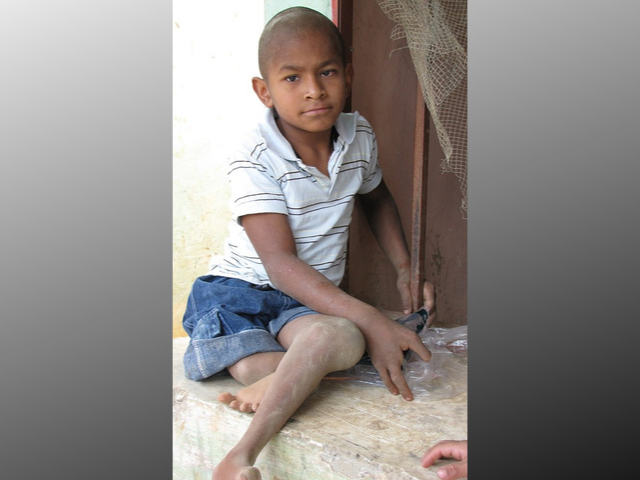The Cause Of Childhood Disability
“Cerebral palsy can be defined as a static damage to the brain that occurs during its developmental stage leaving a child with permanent motor loss”
Every child is unique and they progress at a different pace and usually, the parents are the first to notice any clue of developmental delay in their child. In fact, more then 70 to 80 per cent of all disabilities in children are first noticed by the parents. While some delay in development in early childhood is usually set right as the child grows up, missing some important milestone may point towards some neurological ailments.
Normal child’s developmental progress is separated into four categories:
- Cognitive functioning
- Physical growth
- Social interaction
- Emotional growth
Cerebral palsy can be defined as a static damage to the brain that occurs during its developmental stage leaving a child with permanent motor loss. Its a term used to indicate a group of non-progressive disorders caused by damage to the brain in its developing stage. It hampers the ability to control movement and posture.
Children with cerebral palsy (GP) may experience difficulties in physical development and sometime it may take longer for them to interact socially or emotionally. It a child shows any deviation from normal development, parents should recognize it and take the appropriate steps at the earliest.
The damage may occur during fetal development, childbirth, shortly after birth, or during early infancy. Incidence of cerebral palsy is showing rising trends and its recent prevalence is 2.67 per 1000 live births and it can affect both male and female equally.
There can be number of reasons that cause damage to the developing brain and these include the following:
- If the baby doesn’t receive proper oxygen in the mother’s womb (example: problems from the placenta or umbilical cord)
- Insufficient oxygen supply to the baby at the time of birth (example: prolonged and/or difficult labour)
- Maternal infection during child bearing (example: German measles)
- Low weight during the birth or premature birth
- If there is any incompatibility in blood group between mother and the baby
Some other concerns that can lead to damage of the brain and may result in cerebral palsy are as follows:
- Genetic disorders
- Head injuries during early childhood
- Infective pathology to developing brain (example: meningitis)
In severe cases of CP a child may not be able to walk properly without the help of any special equipment and this makes him succumb to lifelong care. CP is a non-progressive motor disorder of central origin and it does not get worse with time but symptoms can change overtime.
Children with cerebral palsy possess normal intelligence but severe intellectual impairment is also seen in a few cases. They may face other difficulties like:
- Seizures
- Visual impairment
- Difficulties in eating foods
- Hearing impairment
- Difficulty with spatial perception
Role Of Early Intervention Program
Early intervention program for children with GP is targeted to help young children who show signs of developmental delays or having specific health issues interfering in normal growth and development. The main target of the early intervention program is to focus on helping eligible participants to learn the basic and new skills that typically develop during the first three years of life. These skills are:
- Cognitive skills (thinking, solving problems, learning)
- Physical skills (reaching, rolling, crawling, and walking)
- Communication skills (listening, talking, understanding)
- Social/emotional skills (feeling secure, playing and happy)
- Self-help skills (dressing, eating)
Early intervention is a targeted approach towards young children’s with developmental delay or disability. Eligible children can receive early intervention services from birth through the early development years (generally from birth to first three years of life and sometimes beyond three years of age).
Doctors also focus on early adulthood because intervention is not just about the early developmental years but also about preventing adolescents and young adults from developing complications. When a young child is developing and growing up, this is a crucial opportunity to provide them with the skills and support they required. Early intervention involves identifying children and families that may be at risk of developing complications and providing timely and effective treatment.
Main Benefits Of Early Intervention
- Early Intervention for special needs children can improve and accelerates the development of a child with developmental delays, and other concerns
- Early Intervention can provide support to enable families of children with neuro-motor delays, with special needs, or some other issues
- It lays a foundation to improve the life of the child and oiler larger opportunities
